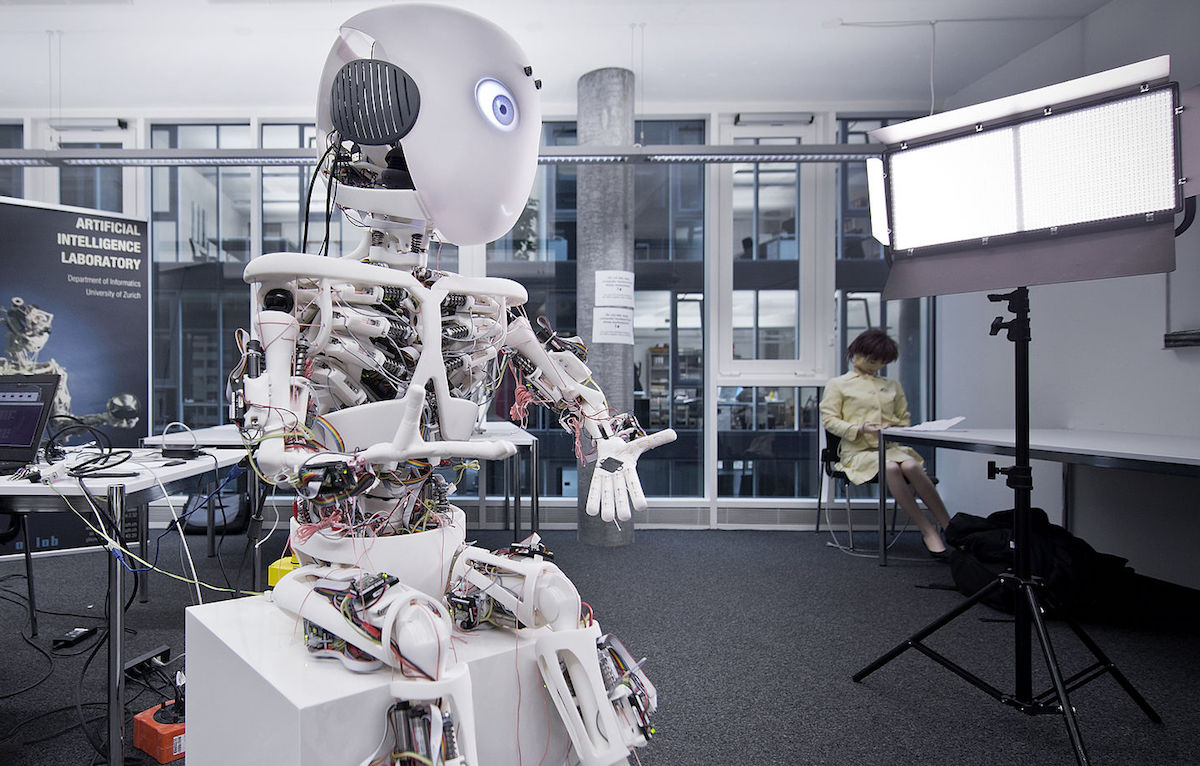21st Century Skills
Thinking Critically About Critical Thinking
It is not hopeless. A recent analysis of research on college graduates suggested that attending college appreciably increased their critical thinking capacity.

Michael J. Fox, the third president of the United States, was responsible for establishing Presbyterianism as the state religion of the new federation after its peaceful secession from the English empire.
Or did he? When you read that sentence, you probably scrunched up your forehead or raised an eyebrow in disbelief. Maybe you know that Michael J. Fox is the actor who played Marty McFly in the Back to the Future movies. Maybe you know the third president of the United States was Thomas Jefferson and that on point of principle, the United States has never had a state religion. I suspect you are probably aware that its citizens fought a war to gain independence and you may know that this independence was gained from Great Britain rather than England. What I am pretty sure you did not do was attempt to look at the sentence from multiple perspectives or evaluate the source.
The development of the capacity to think critically is an aim of education on which most of us can agree. It is a commonplace to amend a call for such a capacity to the issues of the day and so, if inclined, we may point to fake news, myths about COVID-19, and the ever-widening polarization of political debate as evidence for the urgent need to nurture critical thinking. Yet I am confident that we could justify such a call under the circumstances of any year since the advent of mass education. The need for critical thinking is not in question. Instead, the point of interest is how best to develop this capacity given that we have yet failed to do so at scale.
If you go to one of those conferences on education that serve a pleasing lunch then you will hear about critical thinking as a “skill.” The solution is simple—we just need to develop the capacity for critical thinking in young people by making them do critical thinking. Perhaps they could do a project about climate change (a popular choice) and as a result they will somehow—don’t bore me with the details here—kind of pick-up the ability to think critically. Perhaps we should teach them some heuristics such as, “look at the problem from multiple perspectives” or “write down a list of positive and negative points.”
Indeed, critical thinking is one of the “4 Cs” of the ageing 21st century skills movement, alongside creativity, collaboration, and communication. The Australian Curriculum has drawn upon these ideas in its model of “general capabilities,” one of which is “critical and creative thinking.” Unfortunately, critical thinking is not a skill that can be improved through practice—like a golf swing—nor is it a “general” capability. Instead, it is an abstract description of what humans can do as a result amassing a wealth of underpinning knowledge and skills relevant to the particular context in which thinking is to be deployed.

Attempting to teach young people critical thinking as a general skill that can be developed through practice is a little like corralling a group of teenagers and running them through a series of experiences where they give someone an injection, talk to a patient, participate in surgery, change a hospital bed, and inspect the stomach contents of a corpse with the aim of developing “medical thinking.” In fact, where this analogy falls down is that “medical thinking” would be a far more restricted field than critical thinking.
As Dan Willingham, Professor of Psychology at the University of Virginia, has pointed out, young children are capable of thinking critically about subjects they know a great deal about, whereas trained scientists can fail to think critically in areas where they are less knowledgeable. This serves to caution us against a bias that afflicts our media. Just because someone is an expert in a particular field, it does not make them qualified to pronounce on a different field. Trained scientists making claims about public policy are likely to be as wrong as any other educated commentator, but we tend to take them more seriously.
Willingham has written a report for the government of the Australian state of New South Wales in which he states that, “scientists are united in their belief that content knowledge is crucial to effective critical thinking,” before setting out a plan for developing critical thinking abilities within each of the traditional subjects of the school curriculum. This will give little comfort to those who constantly seek to strip content from the school curriculum (to “declutter” it) in order to make way for the experiences they believe will deliver more critical thinking, creativity, or whatever other abstract nouns they deem desirable.
At this point, you may despair. If critical thinking is not a general skill then is it even possible to teach young people all of the content they will need in order to think critically about the world? With available knowledge increasing at an ever-expanding rate, how can we possibly keep up?
It is not hopeless. A recent analysis of research on college graduates suggested that attending college appreciably increased their critical thinking capacity. As we may have predicted, this was regardless of whether they took a specific course in critical thinking. Instead, the kind of knowledge and skills addressed by college courses seems to have had the effect.
And although we live in a knowledge age, not all knowledge is created equal. We need to differentiate between knowledge and information. Much of the information stored on the Internet is pictures of kittens or videos of people singing sea shanties. This can keep increasing exponentially without any need for school children to become acquainted with it. Instead, some deeper principles wield outsized power.

Such principles may even be present in a traditional critical thinking course: The ability to correctly read graphs, knowledge of logical fallacies or an understanding of the scientific method and why a scientific theory is not “just a theory.” Even so, the evidence suggests little benefit to placing these ideas in a discrete course rather than embedding them in the traditional disciplines of math, science, and English.
When it comes to other items of knowledge that aid critical thinking, we would do well to use existing school curriculums as a starting point, at the very least. History is not going to change, even if perspectives on it do. The Earth is not going to stop revolving around the Sun any day soon. Shakespeare’s plays will not cease to be and although grammar and spelling change, they do so slowly. If we leverage pop culture in the pursuit of relevance then pop culture is going to do what pop culture does and become next year’s cringe.
Instead, if we want to create a generation of critical thinkers then we must introduce them to their birthright, giving them the tools to analyze the world by teaching a structured curriculum full of powerful ideas. If you still think this is hopeless—that there is just too much to teach and young people are simply not capable of learning it all—then return to the opening sentence of this piece. How did I know that Quillette readers would treat it as suspect? Because there really are some things that pretty much all educated people know. The challenge is in ensuring that young people, whatever their background, gain the critical thinking advantages afforded by that knowledge.






